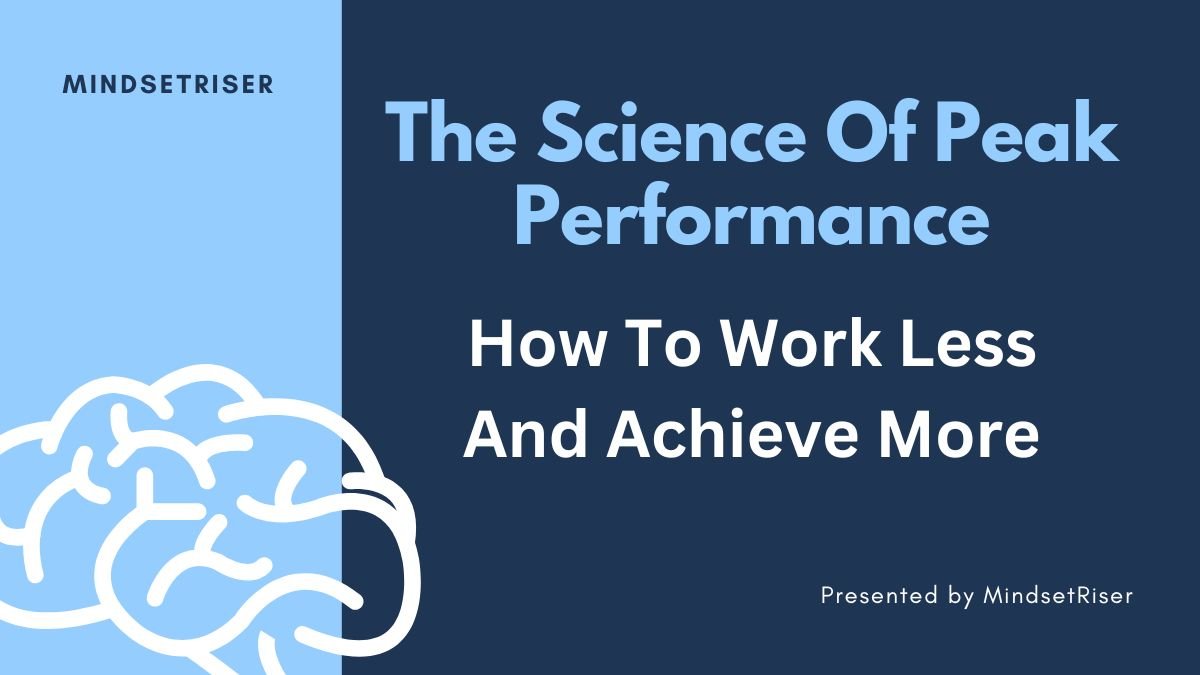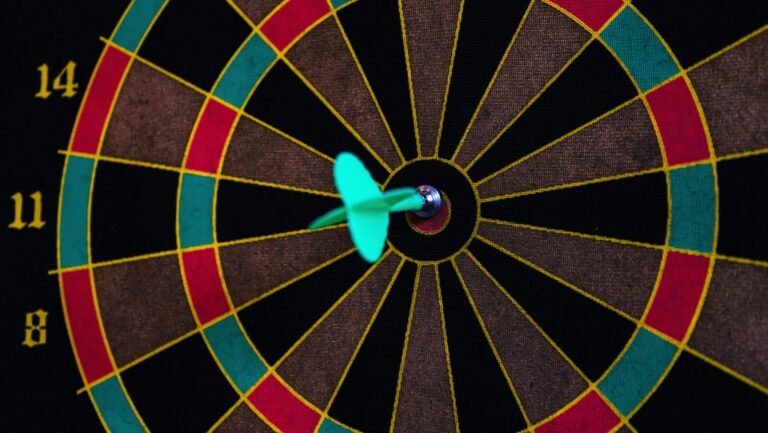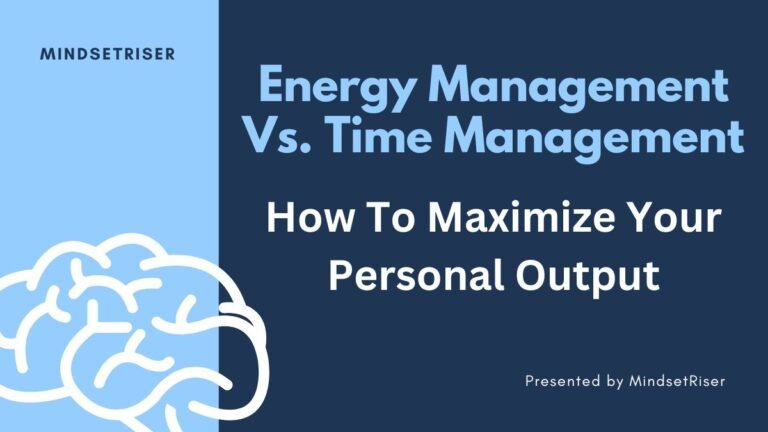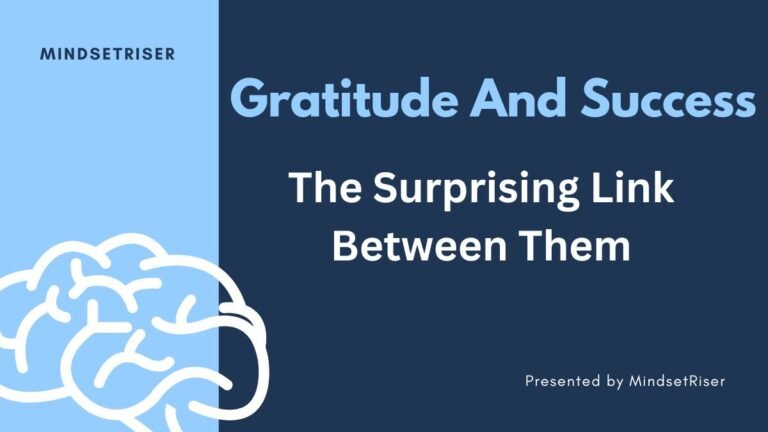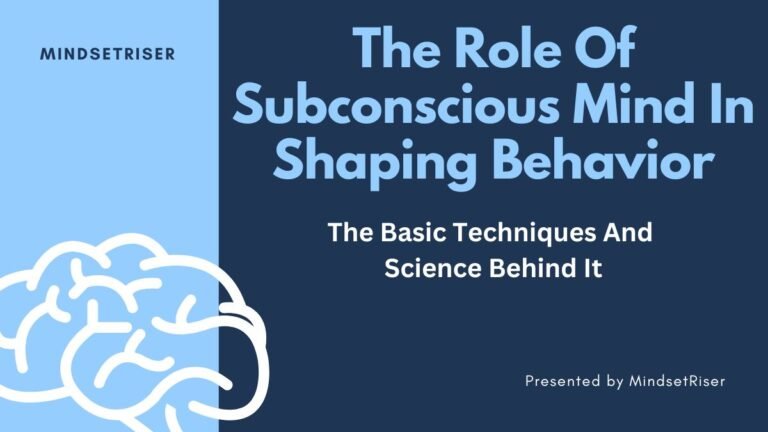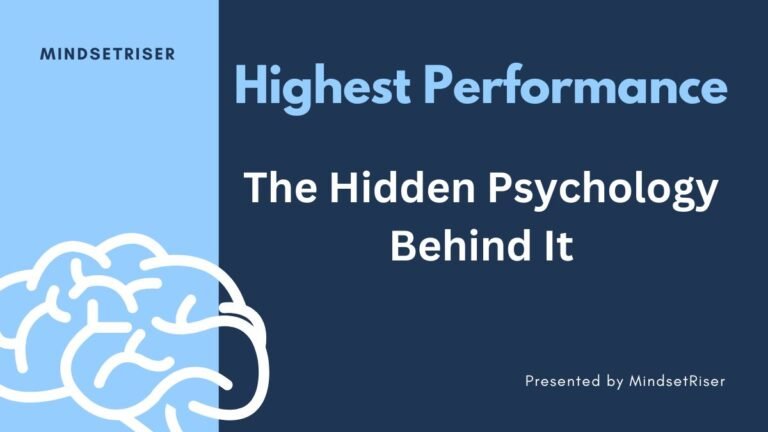The Surprising Science of Peak Performance (How to Work LESS, Achieve MORE)
The Myth of the 80-Hour Grind Elite athletes train just 4 hours a day. Nobel Prize winners take 3x more naps than the average person. Meanwhile, the rest of us glorify burnout, guzzling coffee while chasing an impossible 80-hour workweek. Here’s the truth: Your brain isn’t designed to grind—it’s designed to sprint, rest, repeat. A Stanford study found productivity plummets…
The Myth of the 80-Hour Grind
Elite athletes train just 4 hours a day. Nobel Prize winners take 3x more naps than the average person. Meanwhile, the rest of us glorify burnout, guzzling coffee while chasing an impossible 80-hour workweek.
Here’s the truth: Your brain isn’t designed to grind—it’s designed to sprint, rest, repeat.
A Stanford study found productivity plummets after 50 hours/week. By 70 hours? You’re adding zero value—just wasting time.
Let’s dismantle hustle culture and rebuild your life for effortless excellence.
🧠 The 4 Pillars of Peak Performance
1. Ultradian Rhythms: Your Body’s Hidden Clock
Your brain operates in 90-minute cycles (ultradian rhythms), alternating between high focus and fatigue.
- Science: Researcher Anders Ericsson found top performers (violinists, chess masters) work in 90-minute bursts followed by 20-minute breaks.
- Hack: Use a timer. Work 90 mins → Rest 20 mins → Repeat.
- Case Study: Writer Cal Newport produces bestsellers on a 4-hour/day schedule using this method.
2. Strategic Recovery: The Art of Doing Nothing
Recovery isn’t lazy—it’s strategic recharging.
- Naps: NASA found a 26-minute nap boosts alertness by 34%.
- Walks: A Stanford study linked walking to 60% higher creativity.
- Daydreaming: MIT research shows idle moments activate the default mode network, sparking breakthroughs.
Pro Tip: Schedule “blank space” in your calendar. No tasks, no screens—just stillness.
3. Cognitive Stacking: Match Tasks to Energy
Your energy fluctuates daily. Stop forcing creativity at your worst hours.
- High Energy (Morning): Deep work, strategy, creation.
- Low Energy (Afternoon): Admin, meetings, emails.
Science: In When: The Scientific Secrets of Perfect Timing, Daniel Pink reveals cognitive performance peaks 2-4 hours after waking.
Example: Elon Musk “time-boxes” his day into 5-minute slots, reserving mornings for high-impact engineering decisions.
4. Flow Triggers: Design Your Environment
Flow isn’t luck—it’s engineered.
- Clear Goals: Know exactly what you’re doing (e.g., “Write 500 words by noon”).
- Immediate Feedback: Use tools like Grammarly or a coach to track progress.
- Challenge-Skill Balance: Tasks should be 4% harder than your current ability (UC Berkeley study).
Case Study: Video game designers use these triggers to keep players hooked for hours. Steal their tactics.
⚡ The “Lazy Genius” Protocol
Step 1: Track Your Energy (3 Days)
- Rate energy levels hourly (1-10).
- Note focus peaks and crashes.
Discovery: Most find energy spikes at 10 AM and 4 PM.
Step 2: Eliminate “Zombie Tasks”
Audit your week:
- Kill: Mindless scrolling, unnecessary meetings.
- Delegate: Tasks others can do 80% as well.
- Automate: Email filters, AI tools.
Example: Tim Ferriss outsourced email management for $4/hr, freeing 10+ hours weekly.
Step 3: Build Your Peak Performance Schedule
- 6-8 AM: Deep work (if you’re a morning person).
- 12-1 PM: Walk + nap.
- 3-5 PM: Admin (low-energy tasks).
Pro Tip: Guard your peak hours like a lioness protects her cubs.
💎 Famous Peak Performers
Nikola Tesla
- Worked 3 hours/day, walked 8 miles to spark ideas.
- Legacy: 300+ patents.
Marie Curie
- Mandatory afternoon naps (even in the lab).
- Legacy: Two Nobel Prizes.
Einstein
- Slept 10 hours/night + daily violin breaks.
- Legacy: Theory of relativity.
🚀 Your 7-Day Peak Performance Challenge
Day 1-2: Track energy + identify zombie tasks.
Day 3-4: Implement 90-minute work blocks.
Day 5-6: Add one strategic recovery habit (nap/walk).
Day 7: Design your ideal schedule.
(Comment below: What’s your peak hour? We’ll keep you accountable!)
📌 Key Takeaways
✅ Work in 90-minute sprints—your brain can’t marathon.
✅ Nap like a pro—it’s NASA-approved.
✅ Energy > Time—schedule tasks to match your biology.
✅ Flow is engineered—clear goals + feedback = effortless focus.

